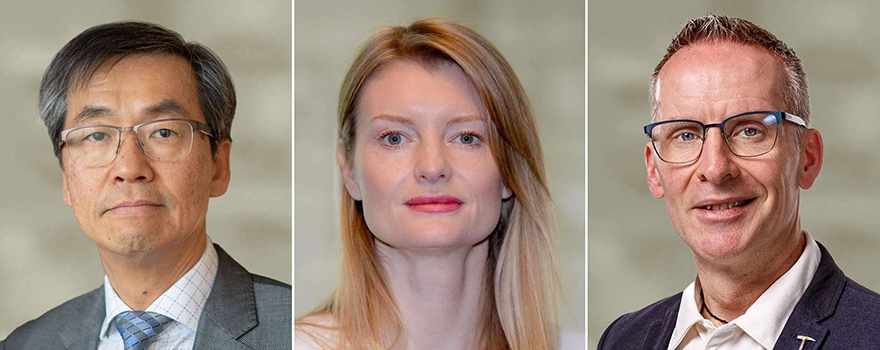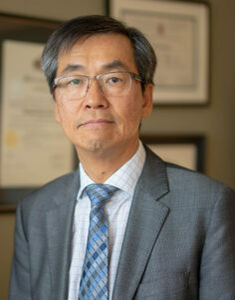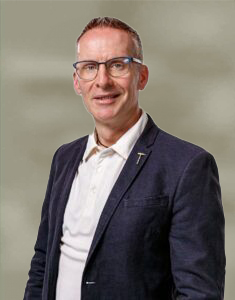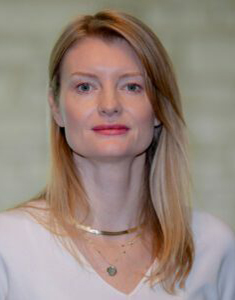Royal Society of Canada honours three Western scholars

By Keri Ferguson, special to Schulich Medicine & Dentistry Communications
Three Western scholars are being recognized for their outstanding achievements and leadership by the Royal Society of Canada (RSC).
Dr. Richard Kim and Professor Gordon Osinski are being inducted as RSC Fellows, and Professor Emma Duerden is being inducted into the RSC College of New Scholars, Artists and Scientists.
The mission of the RSC is to recognize leaders in order to help them build a better future in Canada and around the world.
“Recognition by the Royal Society of Canada is one of the top distinctions you can earn as a scholar in this country,” said Penny Pexman, Western’s Vice-President (Research). “I am particularly thrilled to see this cohort of awardees recognized for their work across disciplines, and across sectors, to improve understandings of health and the environment – two long-standing areas of research strength at Western.”
Kim, Osinski and Duerden will be formally inducted as part of the 2024 RSC cohort in November.
Western’s 2024 Royal Society of Canada Fellows
Fellowship in the RSC is one of the highest research honours attainable by Canadian scholars, researchers and artists. Fellows are peer-elected as best in their field and represent the pinnacle of Canadian intellectual leadership.
 Dr. Richard Kim
Dr. Richard Kim
(Schulich Communications)
Dr. Richard Kim, Professor and Chair, Clinical Pharmacology & Toxicology, Schulich School of Medicine & Dentistry
Wolfe Medical Research Chair in Pharmacogenomics
Professor of Medicine, Physiology & Pharmacology, and Oncology
Director, Centre for Clinical Investigation and Therapeutics
Dr. Richard Kim is internationally recognized for his pioneering work uncovering new pathways involved in why there is so much variation in response to even the same dose of a medication. His research demonstrates why some medications fail to gain access into the brain, as well as genetic variation in drug transporter and metabolizing genes that result in unexpected toxicity to some medications.
Western recruited Kim from Vanderbilt University in 2006, to head the Division of Clinical Pharmacology in the Department of Medicine, which has now become the largest clinical pharmacology training program in Canada and the second largest in North America.
In 2008, Kim started the first personalized medicine clinic in Canada, and since 2011, has been providing his patients with personalized medicine inpatient consultation service. He has leveraged cutting-edge pharmacogenomics technologies to provide individualized drug dosing and selection that enhance drug efficacy, while avoiding adverse drug side effects.
His research in individualized drug therapy has benefited patients worldwide.
Kim is an elected Member of the American Society for Clinical Investigation and Fellow of the American Association of Pharmaceutical Scientists and Canadian Academy of Health Sciences.
 Gordon Osinski
Gordon Osinski
(Steve Anderson/Western Communications)
Gordon Osinski, Professor, Earth Sciences, Faculty of Science
Professor Gordon “Oz” Osinski is known globally for his work on understanding the evolution of the surface of the Earth and other planetary bodies, and the origin of life.
He has conducted fieldwork on six continents, from Antarctica to Africa, with much of his work taking place in the Canadian Arctic.
Osinski is also involved in several past and ongoing planetary exploration missions. He is a co-nvestigator on the PanCam instrument on the European ExoMars mission to Mars and in November 2022, was named principal investigator of the Canadian Lunar Rover Mission – Canada’s first-ever rover mission to the Moon. He is also involved in providing geology training to Canadian and U.S. astronauts. In September 2023, he was named to be part of the geology team for the Artemis III mission, the first human mission to return to the Moon in more than 50 years.
In 2021, Osinski was awarded the Barringer Medal of the Meteoritical Society. His contributions have changed the study of meteorite impact craters, their products, and their effects on the origin and evolution of the Earth, and of life itself.
Western’s newest member of the RSC’s College of New Scholars, Artists, and Scientists
The College is open to researchers of exceptional accomplishment who demonstrate great potential and who are no more than 15 years past conferral of their PhD or equivalent degree.
 Emma Duerden
Emma Duerden
(Christopher Kindratsky)
Emma Duerden, Professor, Faculty of Education
Canada Research Chair in Neuroscience and Learning Disorders
Professor Emma Duerden is an emerging leader in developmental cognitive neuroscience.
Her innovative research program examines cognitive difficulties in brain-based conditions in children, focusing on the influence of both biological and social factors that can promote healthy child development. She uses a wide range of brain imaging and behavioural assessments to study development in the neonate and child.
Duerden has been honoured with several local, provincial and national awards for her research. She has been recognized as a Children’s Health Research Institute Scientist of the Year and has received an Early Researcher Award (Province of Ontario), the Future Leaders in Brain Research Award (Brain Canada) and a Canadian Institutes of Health Research Early Career Investigator Award. She regularly gives public talks and webinars on child health. She has also made more than 60 radio, TV and print media appearances concerning her research on child development, which highlights the significance of her research in the public discourse.









